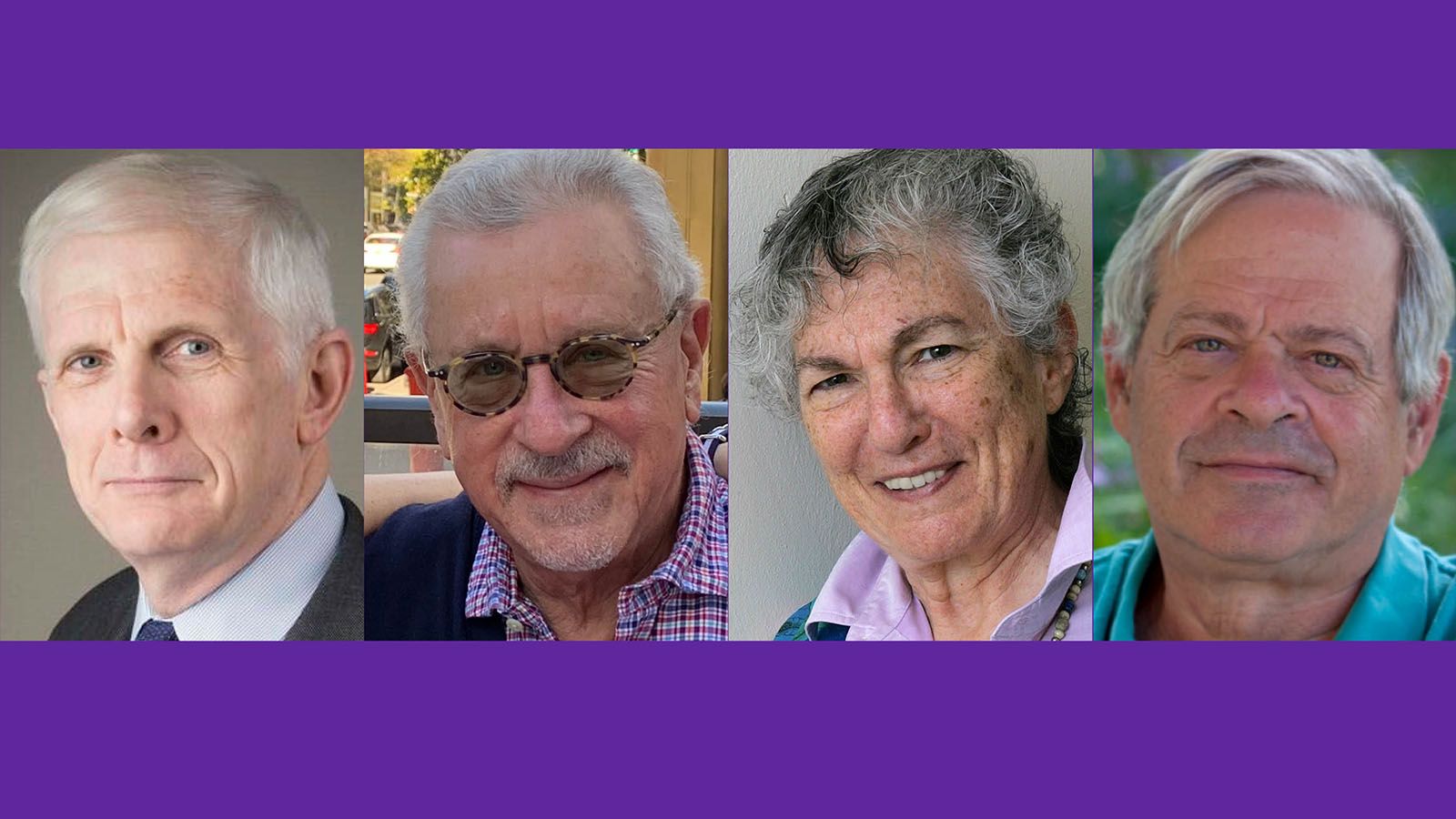
Events /
- This event has passed.
Repeal! - The End of Prohibition’s ‘Noble Experiment’

(From left) Robert Billingsley, Ralph Blumenthal, Blanche Wiesen Cook, and Daniel Okrent
Roosevelt House is pleased to present a discussion of the historic repeal of the 18th Amendment in December 1933—a signature early reform of FDR’s New Deal. Not that Roosevelt had ever renounced spirits himself, ordering four cases to be delivered, legally, right here to his home on East 65th Street just before Prohibition began. But for 13 turbulent years, the U.S. was officially dry, the improbable triumph of a surging women’s rights movement, religious fanaticism, disproportionate rural voting clout, and nativist rage against Germany and its brewers over the Great War. The alcohol lobby proved no match for a utopian vision of universal sobriety whose time had surely come. Temperance, which had once meant moderation, suddenly meant abolition. And drinkers were too busy drinking to protest.
Americans had been wedded to alcohol since colonial days. The fledgling republic faced its own rebellion when Pennsylvania farmers, enraged by a tax on whiskey, took up arms against President George Washington, until Congress backed down and repealed the tax (which had proved impossible to collect anyway.) By 1830, the average American was consuming two bottles of 80 proof spirits a week—three times more than today. The government itself was addicted—to the alcohol tax: by 1875, the tax was generating a third of all federal revenue.
But intractable forces were in play. By the later 19th century, women were clamoring for the vote, in part to shutter the saloons that were destroying domestic tranquility. Bigotry ran rampant. Liquor was branded the cause of criminal behavior by African Americans, Jews were vilified as brewers and distillers, and the Irish as saloon-keepers. And, by 1913, the government had found another way to finance itself—the income tax.
By the end of 1933, nine months after FDR’s inauguration (March 4, 90 years ago), Prohibition was crushed by popular demand—a return to national sanity with a mixed legacy: sinister new crime lords, corrupted law enforcement, and seismic fault lines of public disorder and official hypocrisy. But, buoyed by the New Deal, Americans were more than ready to raise a glass to the return of John Barleycorn. Happy days were here again. But how exactly could America go suddenly un-dry?
Robert L. Billingsley is vice chairman of Cushman & Wakefield, the global commercial real estate services company, and a biographer of his father, Logan, who led a storied career as a developer of the Bronx and leader of one of America’s largest bootlegging clans. Eldest brother of Sherman Billingsley of the Stork Club, Logan served stints in prison for killing his father-in-law and large-scale liquor trafficking before and during national Prohibition. He later became president of the Bronx Chamber of Commerce and a political ally of FDR’s. Robert Billingsley joined the realty firm of Cross & Brown in 1971, eventually becoming its youngest ever vice president, and in 1977 was a founding principal of Colliers ABR, a predecessor of Cushman & Wakefield. He is working on a book about his father.
Ralph Blumenthal, moderator, reported for The New York Times from 1964 to 2009 and is the author of Stork Club: America’s Most Famous Nightspot and the Lost World of Cafe Society about proprietor Sherman Billingsley and his Prohibition roots as an Oklahoma bootlegger. A Distinguished Lecturer in the Library at Baruch College, Blumenthal works with historic collections, including an influential 1936 Rockefeller study, After Repeal.
Blanche Wiesen Cook (’62) is Distinguished Professor of History and Women’s Studies at John Jay College and the Graduate Center of the City University of New York. Her definitive three-volume biography of Eleanor Roosevelt was called “monumental and inspirational…[a] grand biography” by The New York Times. Volume One, on the Times bestseller list for three months, received many awards, including the 1992 Biography Prize from the Los Angeles Times, and the Lambda Literary Award. Volume Two was also a Times bestseller.
Daniel Okrent is the author of Last Call: The Rise and Fall of Prohibition, featured in the 2011 Ken Burns series on PBS. He is also the author of Great Fortune: The Epic of Rockefeller Center, a finalist for the Pulitzer Prize in History, and The Guarded Gate: Bigotry, Eugenics and the Law That Kept Two Generations of European Immigrants Out of America, winner of the National Jewish Book Award. Okrent served as the first public editor of The New York Times from 2003 to 2005 and before that was an editorial executive at Time Inc.
This event will be held in person at Hunter College and online via Zoom.
- Zoom link will be provided upon RSVP
- Please download the Zoom app before joining the event
- Access Hunter College's "Zoom Webinars Best Practices" Guide
- Roosevelt House
-
47-49 East 65th St.
New York, NY 10065 United States + Google Map - Entrance on 65th Street between Park Avenue and Madison Avenue

